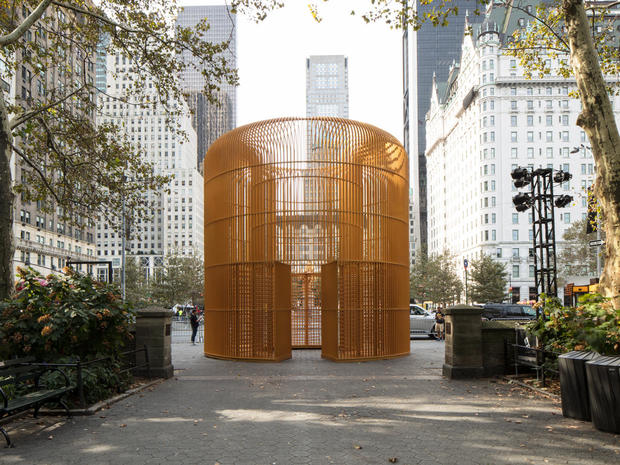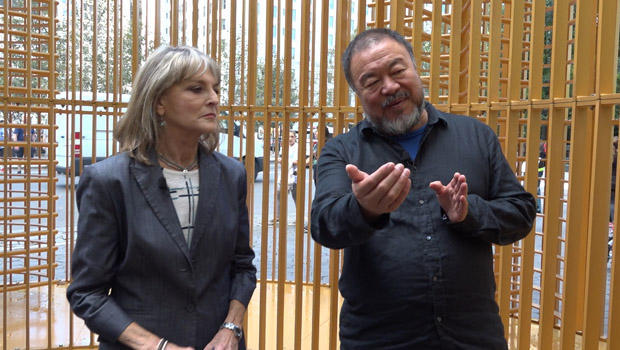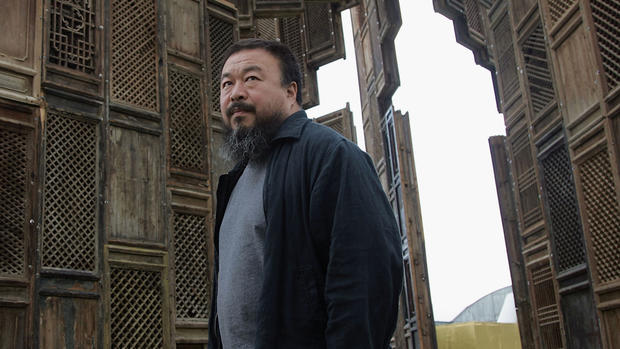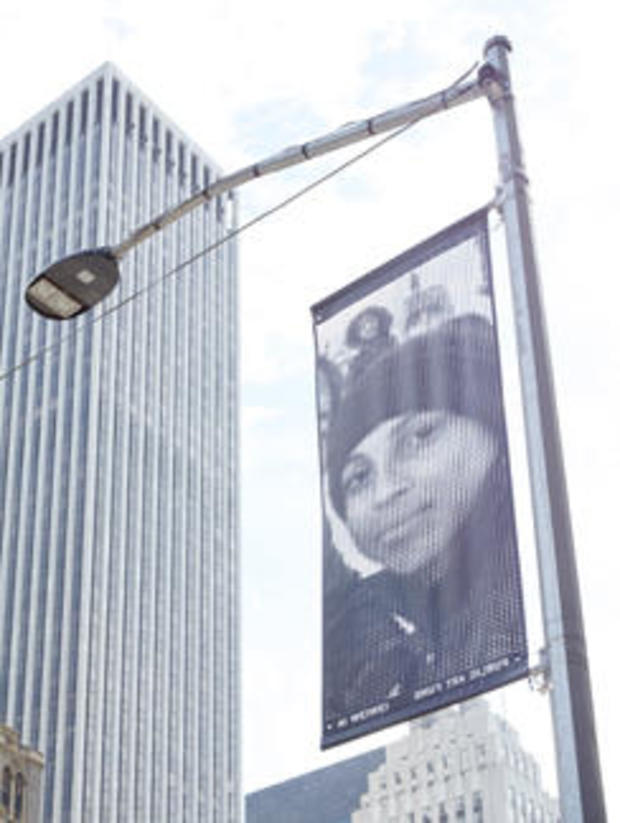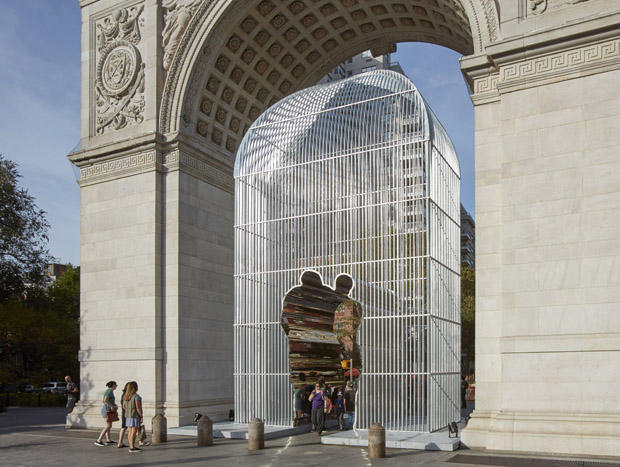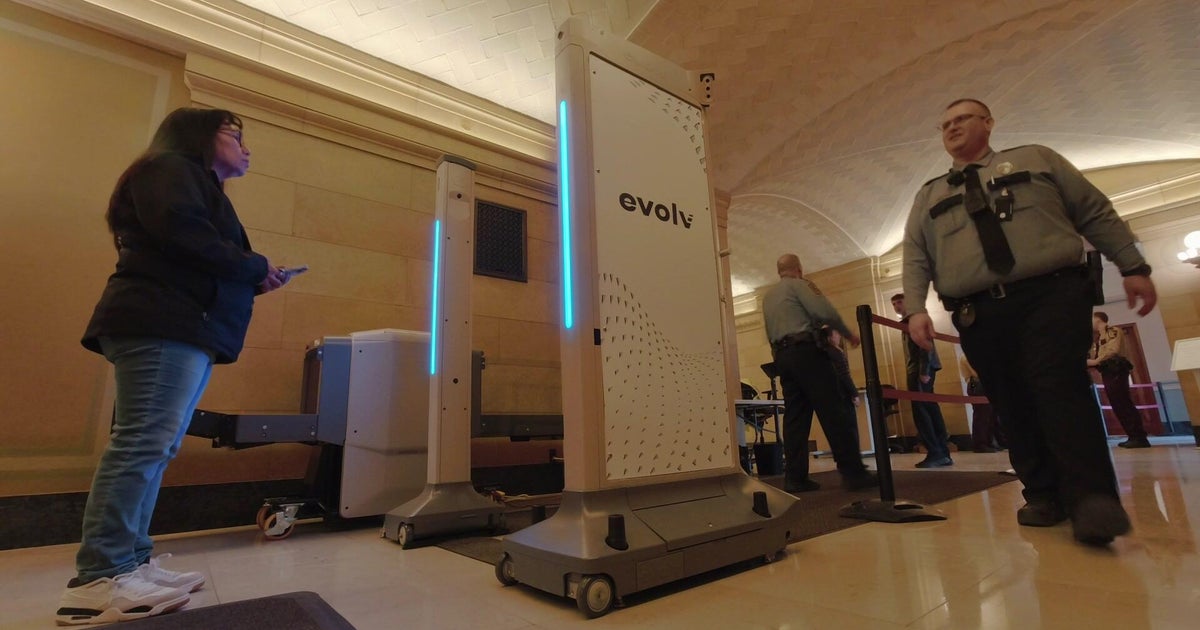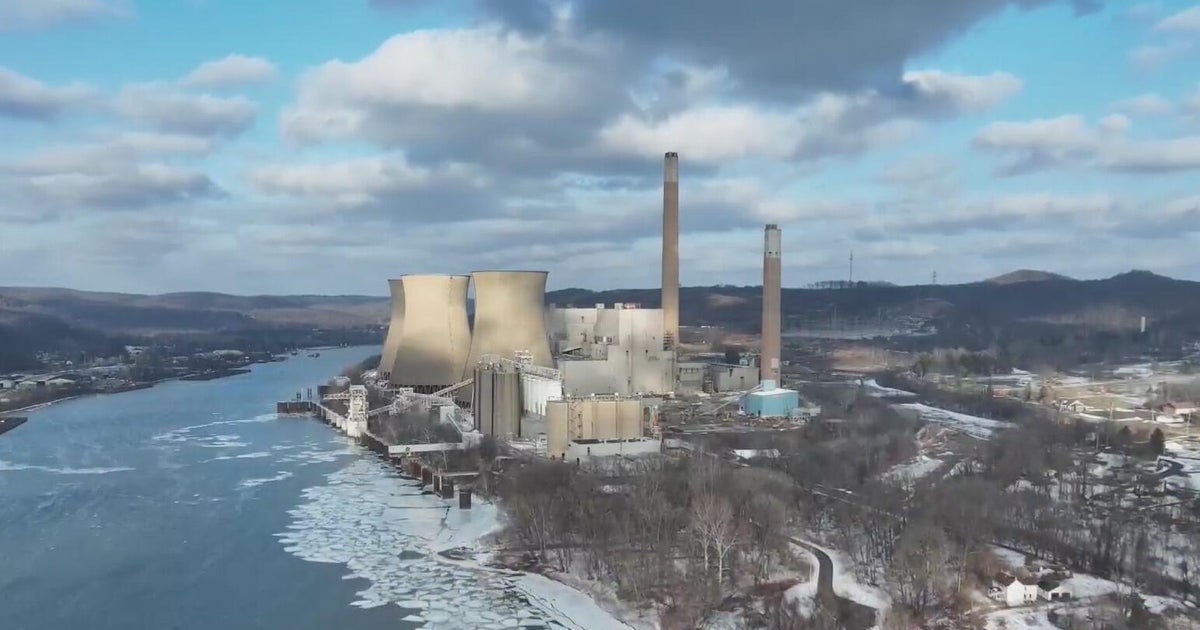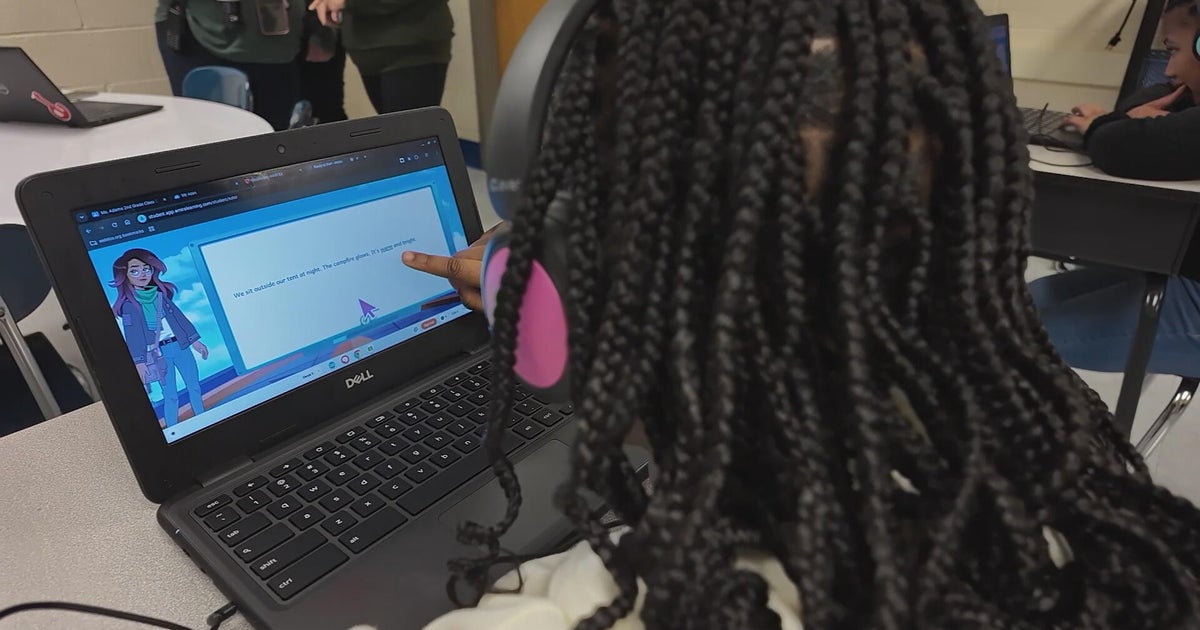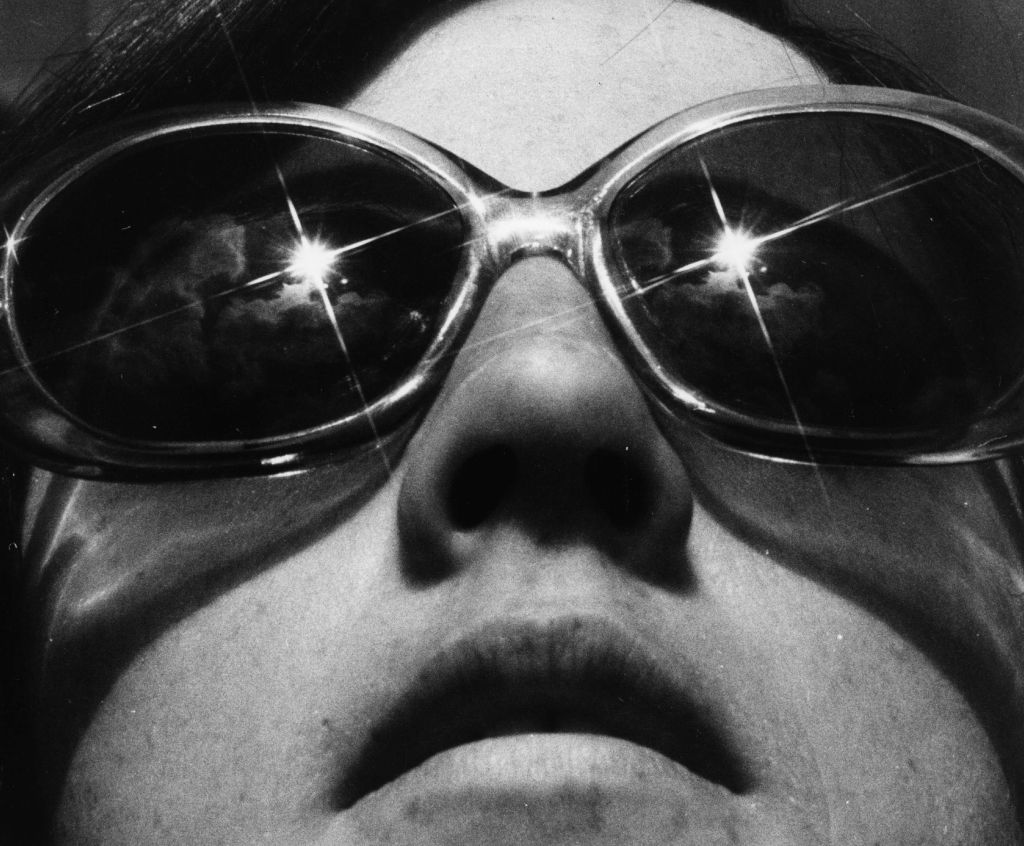Ai Weiwei's "Good Fences Make Good Neighbors"
Provocative new art is on display around New York City these days, thanks to Chinese dissident Ai Weiwei. Rita Braver is our guide:
In the wee hours of the morning at the edge of New York's Central Park, a structure goes up. But what does it have to do with images of refugees fleeing violence in their home countries? Everything!
"It's about 65 million people [who] lost their homes," said Ai Weiwei. "It's biggest number since the World War II, and it keep growing. And I think the powerful nation has the responsibility to defend those human conditions."
Ai Weiwei, the famous Chinese dissident artist, made both "Human Flow," a documentary opening this weekend about the worldwide plight of refugees, and the Central Park sculpture, called "Gilded Cage." It's part of a new city-wide exhibit on the same subject.
"It's like a minimal art, a conceptual art," Ai said. "And people start to enjoy the visual effects."
If you look closely, you can see turnstiles here representing the barriers that face people fleeing their homelands.
Ai Weiwei identifies himself as a refugee, having been imprisoned and beaten by Chinese authorities, and only allowed to leave in 2015 after four years of house arrest.
"I could still be in jail for another ten years easily," he said.
"So it's both beautiful to be in, and sort of terrifying to think about at the same time," Braver said.
"That's true, that's true. It's our modern life. You have so many ways to understand our life."
Ai Weiwei spent two years making his documentary, shot in more than 40 refugee camps and border crossings in 23 nations.
To watch a trailer for "Human Flow," click on the video player below.
The exhibition, which is sponsored by New York's Public Art Fund, includes 300 separate pieces scattered through every borough -- some at bus shelters, and on lampposts. Barriers that block refugees are echoed in "Circle Fence," surrounding the Unisphere in Flushing Meadows, Queens, where Ai Weiwei sold T-shirts when he was a struggling young artist living illegally in New York in the 1980s.
"And now you're being welcomed back as kind of the toast of New York City," Braver said.
"Yeah, life is so surreal. It's unthinkable."
"You want to use your celebrity?"
"If that can be useful, then that's about it," he replied.
The city-wide installation is called "Good Fences Make Good Neighbors," a line from a Robert Frost poem that actually questions whether fences are necessary. And though Ai is carefree enough to snap selfies on the street, he had something more serious in mind when he created "Gilded Cage" to stand just a stone's throw from Trump Tower, home of a president who, along with many supporters, wants to build a wall along the Mexican border.
Braver asked, "Is this a message to him?"
"Yes, it is," Ai said. "We're all human beings. We have to find a way to benefit each other, help each other, rather than to have hatred with each other."
- How Chinese artist Ai Weiwei became an enemy of the state ("60 Minutes," 05/21/17)
- When an artist's work becomes dangerous ("60 Minutes," 05/18/17)
- Political artist Ai Weiwei ("Sunday Morning," 01/27/13)
For more info:
- aiweiwei.com
- Ai Weiwei: Good Fences Make Good Neighbors, citywide exhibition in New York City (through February 11, 2018) | Interactive map
- "Human Flow," documentary directed by Ai Weiwei, in theatres October 13 | Find showtimes and purchase tickets
